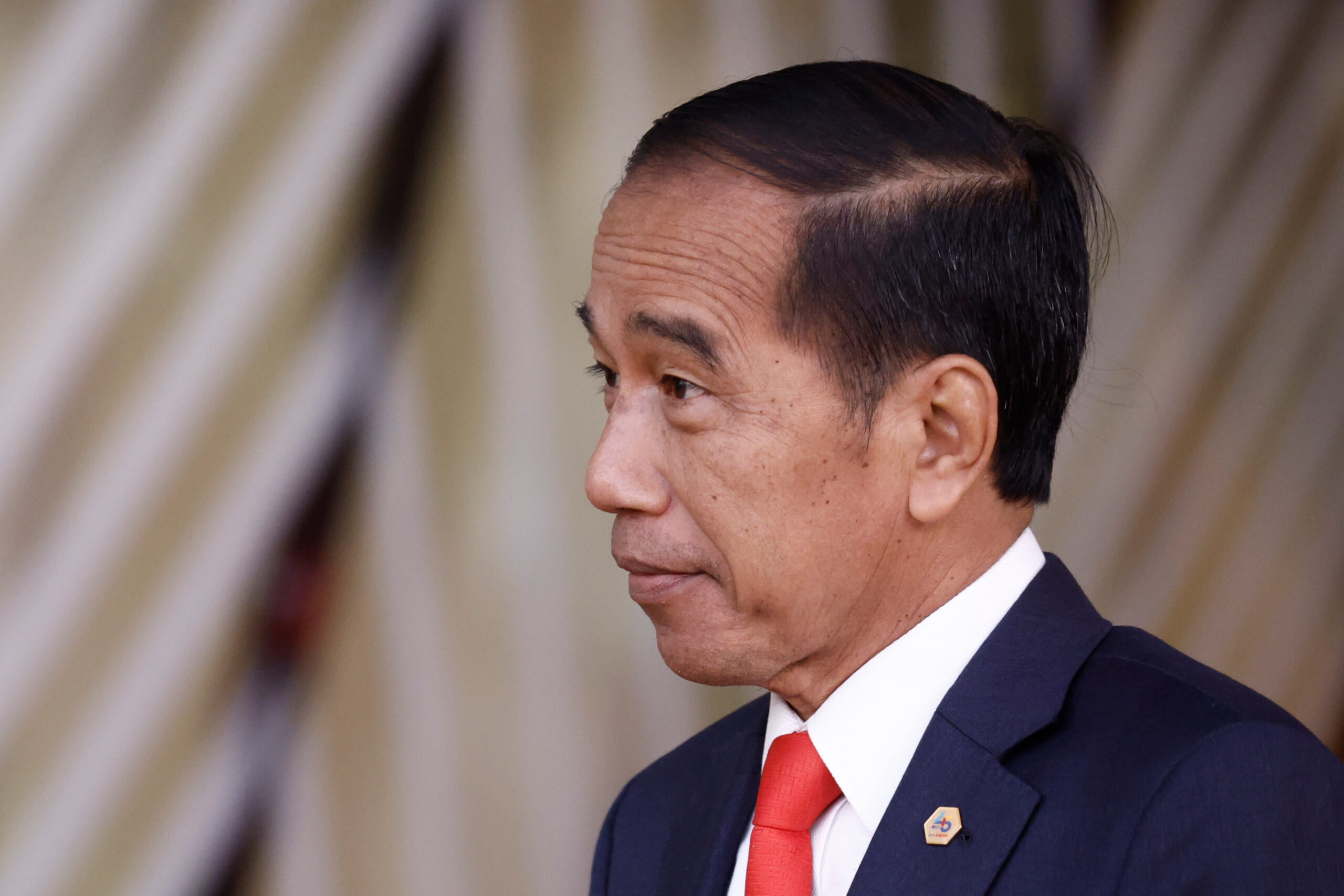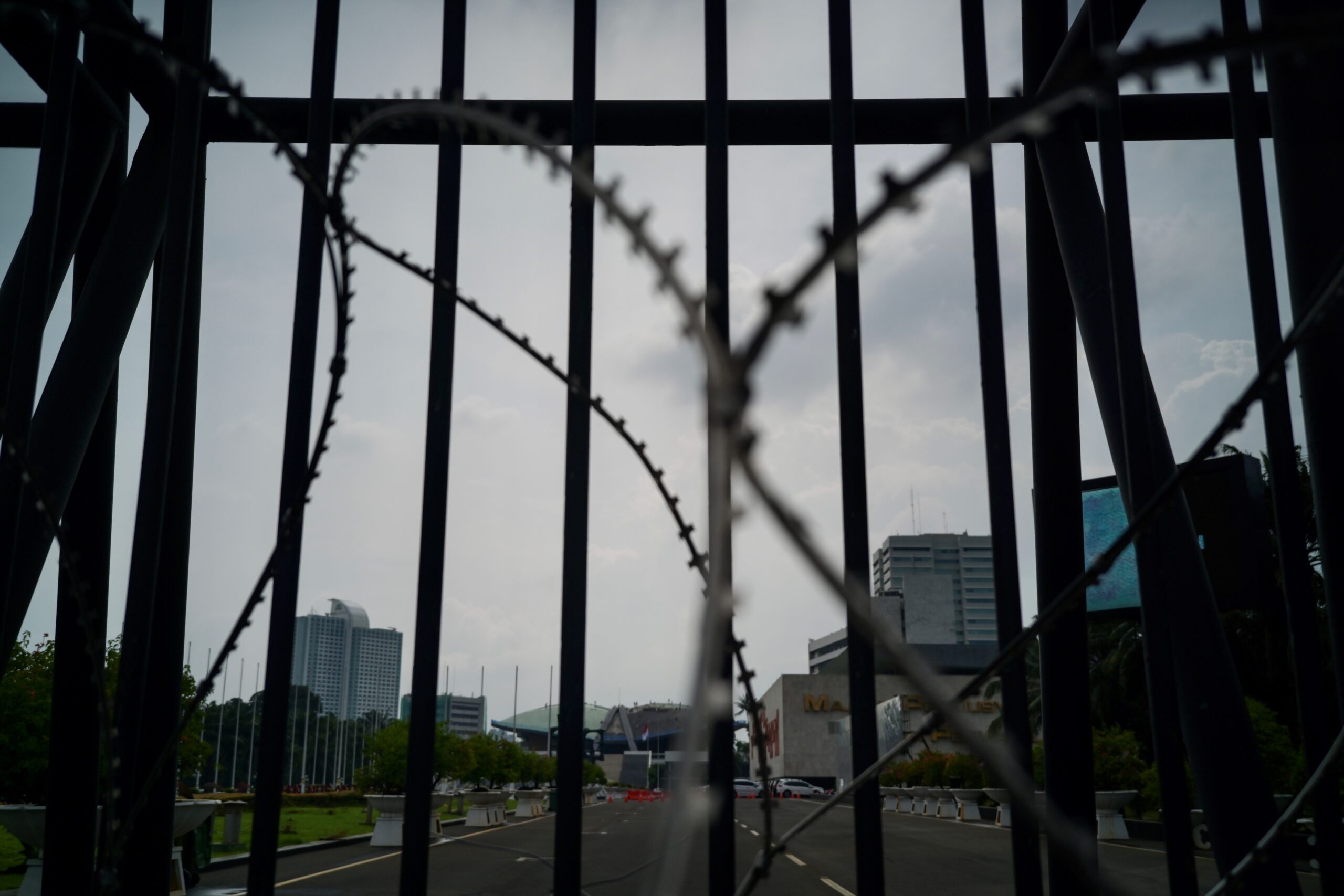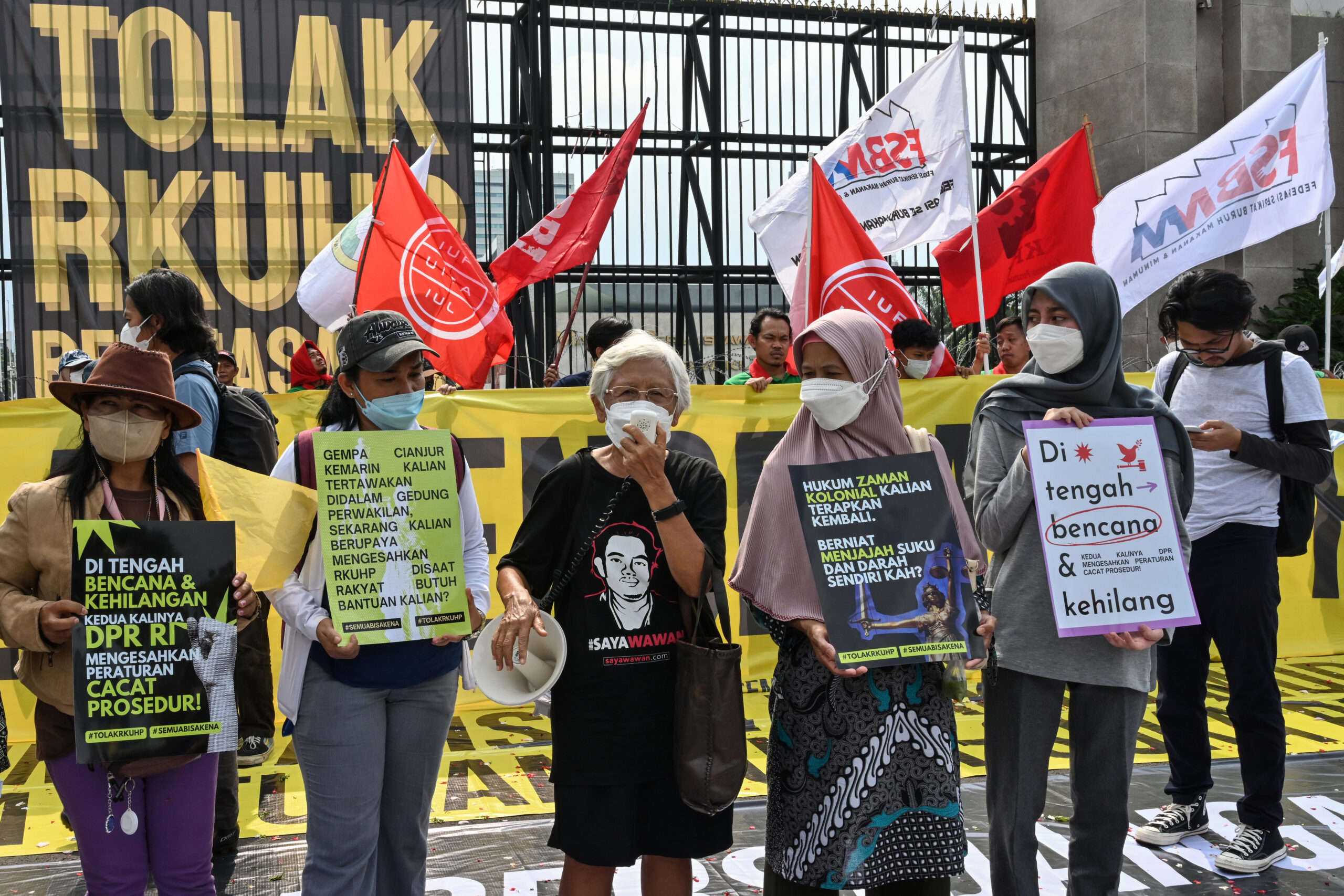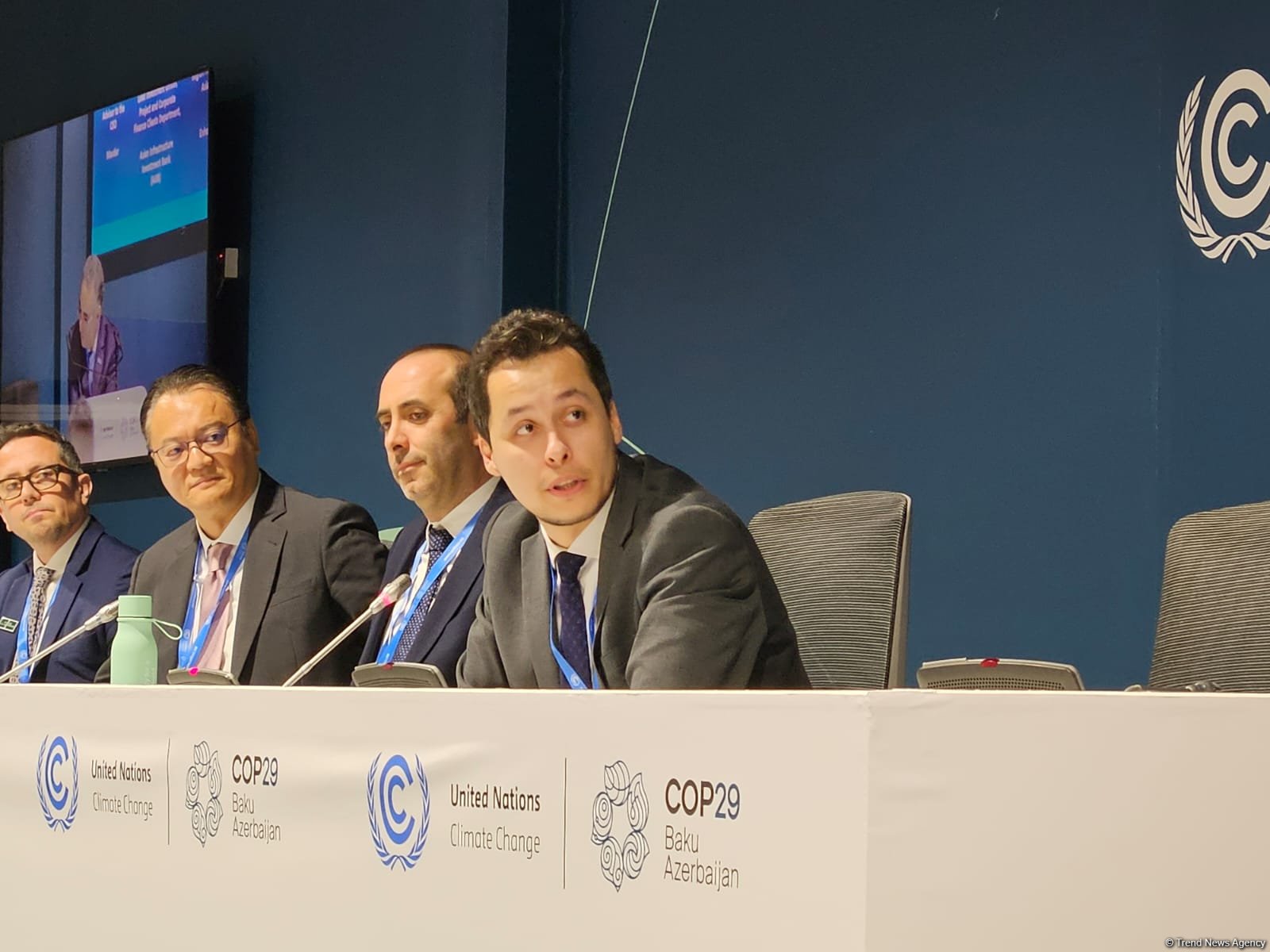Indonesia’s new Criminal Code may have won unanimous support in parliament, but it remains controversial among rights advocates who say it clamps down on a range of civil liberties.
Many of the headlines in the wake of the Criminal Code’s announcement in December 2022 focused on the criminalisation of extramarital sex and cohabitation. But the code – a wide-ranging document encompassing 624 articles – has also been criticised as restricting press freedom and civic participation more generally. Among other things, the code would limit the ability of the public to protest, as well as reintroduce penalties for alleged insults to the president, vice president and other government bodies, as well as the state ideology Pancasila.
”The New Criminal Code contains contentious provisions that we believe to be misused and misinterpreted to unduly restrict freedom of expression and human rights,” said Amnesty Indonesia executive director Usman Hamid during a 26 January panel discussion about the code.
Aspirations to replace the current penal code, which was inherited from the Dutch colonisation period in the early 1900s, have been in the works since the 1960s. Earlier attempts to replace the code were unsuccessful, with the latest run in 2019 sparking major public protests.
The new code has yet to go into effect and will remain pending for a period of three years. It can still be revised and is subject to review by the Constitutional Court. Within these next three years, the Indonesian government will take steps to prepare its implementation, ranging across the whole system of governance and law enforcement, as well as public education.
Already, there has been a petition made to the Constitutional Court questioning the new code, including by Dewan Pers, or the Press Council, to petition for changes the group says threaten press freedom.
“Within the next three years, the New Criminal Code can be revised – the law in Indonesia can always be revised, but we have to take into account the political process,” said Bivitri Susanti, a lecturer from Jentera School of Law in Jakarta. “We understand that the election is just one year from now, so we will have lame duck legislators. I think there is a very small opportunity for revision of the entire code.”
President Joko Widodo is ineligible to run in the 2024 election due to his term limit, so the next year is widely seen as a chance for him to cement his legacy. As for challenging laws ratified under his administration, legal observers point to the family ties of Constitutional Court Chief Justice Anwar Usman – who married Widodo’s younger sister last year – as a potential conflict of interest.
Others look to a recent history of the parliament muzzling the court’s authority. A previous sweeping legal package, the economically focused Omnibus Law, sparked heated protests of its own when ratified in 2020. That law was challenged in the Constitutional Court, where former Justice Aswanto voted against its constitutionality.
In November, lawmakers made an unusual but successful push to remove Aswanto from the court, arguing that he’d annulled too many pieces of legislation.

Limiting public protest
Among its many provisions, the new Criminal Code would criminalise demonstration without official notice – such as those mass movements that have boiled in the past few years – deemed to cause public disruption.
“The criminalisation of demonstrations participants can target marginalised groups, especially those who are evicted from their lands and homes,” said Alif Nurwidiastomo, a public attorney with LBH Jakarta, also known as Jakarta Legal Aid. “As demonstrations in evictions tend to be reactionary, this can threaten such groups.”
The new criminal code would also penalise the dissemination of “fake news” and “defamation” online, with sentences of up to four years in prison. This has raised concerns that the law will be used to silence critical voices and stifle political dissent, especially as the code does not specifically define its terms.
Indonesia ranked 117 of 180 countries in the Reporters Without Border press freedom index 2022, and the state has already convicted journalists for defamation.
Rights groups such as Amnesty International have in recent years sounded a growing alarm that Indonesian authorities are increasingly cracking down on peaceful dissenters across the country, allowing repression from state and non-state actors.

Not enough curbs
Advocates of the New Criminal Code say it provides Indonesia a more solid post-colonial identity, while pointing to its more progressive elements.
The code recognises marital rape as a crime, which the old code did not, and expands the definition of sexual abuse in general. It also widens exemptions for cases in which women may legally seek an abortion – though it would also restrict promotion of contraceptives.
Meanwhile, the new code would make it easier to commute death sentences or reduce life sentences for convicts.
Backers of the code also say the powers it grants the state to police concepts such as sex, insult or cohabitation would come with curbs to limit prosecution.
For one, the statute to criminalise insult of the president would require the office-holder themself to file a complaint against the alleged insulter. And in the case of illegal cohabitation or extramarital sex, the criminal complaint could only be filed by a close family member, such as a parent, spouse or child.
But legal dissenters to the code say these limitations aren’t nearly enough to protect rights, and provide many opportunities for social criminalisation.
“Members of the community can report what they perceive as public indecency – such as public display of affection – to law enforcement,” said Nurwidiastomo.
Likewise, the law lecturer Susanti believed the supposed curbs would pose little issue to groups motivated to prosecute.
“Criminal law is for criminal conduct. Not thoughts, not sexual orientation and gender expression,” she asserted.
“There are already symptoms and examples of groups who want to put morality principles into law. Then the New Criminal Code is the window [for that].”






















Discussion about this post